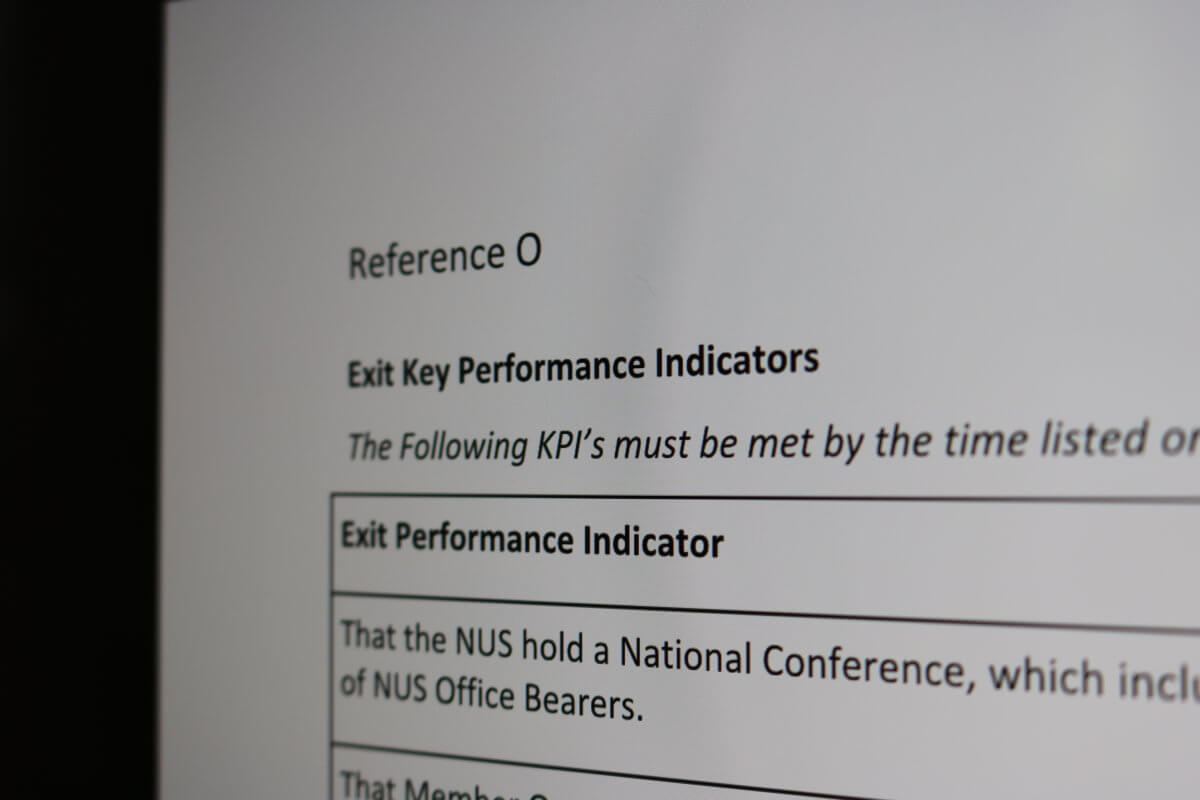ANUSA’s Key Performance Indicators (KPIs) for the National Union of Students (NUS) have been released along with the agenda for ANUSA’s SRC 3. These KPI’s are used by ANUSA to measure the effectiveness of the NUS and whether the activities of the NUS are in line with ANUSA’s standards. The KPI’s will be discussed at SRC 3 on the 30th April 2019 and will determine ANUSA’s position on accrediting to the NUS.
For an explainer on what SRC is, and who the NUS are, more information can be found here.
The proposed KPI’s are organised into Exit KPI’s and Assessable KPIs. Exit KPI’s determine whether or not ANUSA accredits to the NUS. The Assessable KPI’s determine how much money ANUSA gives to NUS in the form of fees.
Some significant Exit KPIs are:
-
That the National Executive of the NUS appoints a Returning Officer for the 2019 NUS National Conference who is not a current or former member of any NUS faction. This does not exclude a person who is a member of a political party.
-
That the NUS does not condone the use of violence as a legitimate means of protest and takes all reasonable steps to minimise the risk of violence at NUS endorsed protests. Reasonable steps may include:
-
Assessing the need for a police presence
-
Where an NUS endorsed protest becomes violent, conducting a review of the event detailing how the violence could have been avoided
-
Ensuring that suitable event management processes are followed
-
-
The budget of the NUS for the coming year is supplied to campus presidents upon its approval in accordance with B89.
-
All National Executive minutes & Office Bearer reports are made available on the NUS website.
-
That a guide explaining all the processes of NUS National Conference is produced and sent out to all member organisations at the same time as the notice of National Conference.
The KPI’s were discussed at the week 7 Education Committee meeting, with Education Officer Tanika Sibal saying that she will personally support the KPI’s at SRC 3.
Much of the debate at the 23 April meeting centred around the KPI’s requiring the NUS National Executive to appoint an independent returning officer. Henri Vickers, General Representative, said that the power of the National Executive gives them discretion to maintain or reject an accountable NUS, and this desire for a non-accountable NUS could prevent ANU from accrediting and allow the National Executive to continue growing factional majorities.
Vickers played into a wider debate around NUS accreditation, saying he doesn’t believe that ANUSA should have KPI’s if they stop it from accrediting. He also said that it would be more effective to accredit and make change from the inside, as opposed to having no voting power and waiting to vote for an independent returning officer in the future.
Sibal disagreed with Vickers’ view that ANUSA should overlook some KPI’s in favour of accreditation. However, members of National Labor Students (NLS) and Student Unity (SU) who were also at the meeting supported Vickers. Members of Socialist Alternative (SAlt) in attendance made clear that they do not support KPI’s at all. As the meeting became heated, ACT SU convenor Nick Pagonis emphasised that they and NLS were “trying to find a solution, we’re trying to compromise. This is what politics is about” in response to SAlt’s blanket statement over annulling the KPI requirements.
Sibal stated that the general feeling at the NUS was that they were keen for the ANUSA to accredit. ANUSA last accredited to the NUS in 2015 and KPI’s were introduced in 2016.
A motion will be brought at SRC 3, to be held on April 30, to vote on the KPI’s. Students are able to attend SRC and speak to motions, but cannot vote. The vote to accredit with the NUS will likely occur at SRC 8.
Tune in to Woroni on Twitter to see live coverage of SRC 3.
Grace Sixsmith is a member of the Australian Labor Party and attended NUS NatCon in 2018 and sat with Student Unity on conference floor.
We acknowledge the Ngunnawal and Ngambri people, who are the Traditional Custodians of the land on which Woroni, Woroni Radio and Woroni TV are created, edited, published, printed and distributed. We pay our respects to Elders past and present. We acknowledge that the name Woroni was taken from the Wadi Wadi Nation without permission, and we are striving to do better for future reconciliation.
